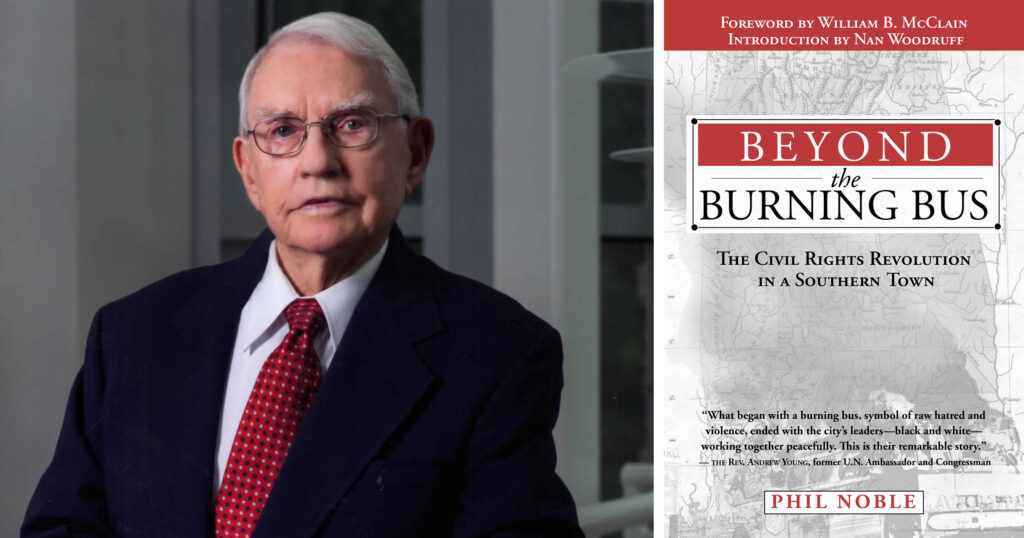
One of the recent losses from the pandemic was the cancellation in Decatur, Georgia, on last Sunday of a celebration of one of our authors turning one hundred years old: the Reverend J. Phillips Noble. NewSouth Books published his memoir, Beyond the Burning Bus: The Civil Rights Revolution in a Southern Town, in 2003.
Reverend Noble was born August 18, 1921, in rural Mississippi. He grew up in segregation and like most Southern Whites was taught to understand “that’s how it was.†But even as a youngster, Noble realized that something was wrong with an education system that provided him a classroom but didn’t do the same for Black sharecroppers he worked alongside in the fields with and played with on his family farm.Â
He grew up to attend Presbyterian seminary, where he developed further consciousness about race and religion. In one of his early pastorates, he could see looming trouble in the reaction of some of his White church members to the Supreme Court’s Brown v. Board of Education decision in 1954. His awareness was growing. And then when he was called two years later to the pastorate of a larger church in Anniston, Alabama, he saw firsthand the incongruity of White registrars suppressing Black would-be voters.
Soon local segregationists were firebombing a Greyhound bus carrying Freedom Riders, beating up and harassing civil rights protestors, and doing all they could to maintain the status quo of white supremacy and total segregation.
Did Reverend Noble pray about this? Yes, and even publicly and even with local Black ministers, whom he surprised with his conviction for human kindness and compassion, which included racial justice. Thus he became one of the leaders of a biracial commission that helped bring Blacks and Whites together in their small Southern city. Bloodshed and strife were minimized, and relationships were made across the racial divide. Bit by bit, things improved, and Reverend Noble was part of the reason why.
Happy 100th, Phil. And thank you for a life well-lived.
